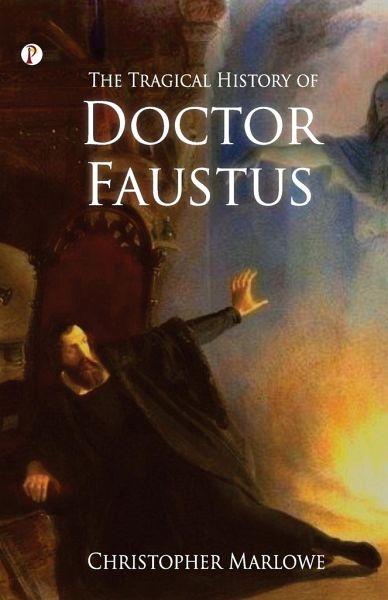
The Tragical History of Doctor Faustus
Versandkostenfrei!
Versandfertig in 1-2 Wochen
13,99 €
inkl. MwSt.

PAYBACK Punkte
7 °P sammeln!
Written by Christopher Marlowe, The Tragical History of Doctor Faustus was written sometime between 1589 and 1592. It is based on German stories about the title character, Faust in which a man sells his soul to the devil for power and knowledge. The play narrates the story of a highly intelligent and ambitious German scholar who decides that he wants more from life than he currently has. He feels he has learned all he can about medicine, law and logic and that the only way forward for him is to learn magic. The play ends with a brief funeral for Faustus and a moral ending by the chorus that wa...
Written by Christopher Marlowe, The Tragical History of Doctor Faustus was written sometime between 1589 and 1592. It is based on German stories about the title character, Faust in which a man sells his soul to the devil for power and knowledge. The play narrates the story of a highly intelligent and ambitious German scholar who decides that he wants more from life than he currently has. He feels he has learned all he can about medicine, law and logic and that the only way forward for him is to learn magic. The play ends with a brief funeral for Faustus and a moral ending by the chorus that warns audiences to beware of Faustus's fate. Doctor Faustus was first performed in 1592 and is considered one of Marlowe's most significant plays. It includes a number of themes, symbols and other literary devices and is generally seen as a blend between a tragedy and a cautionary tale.












